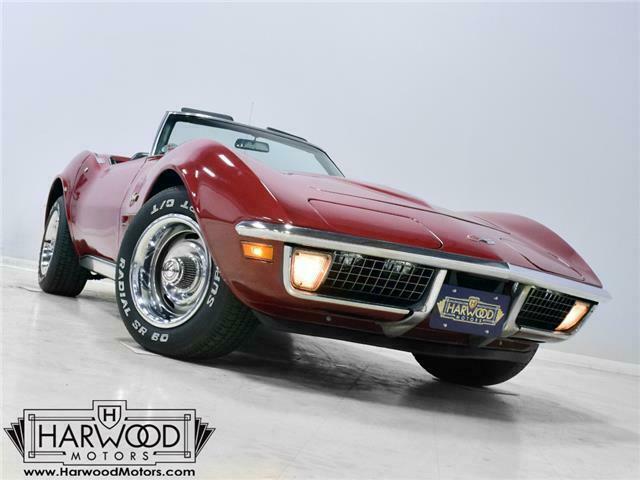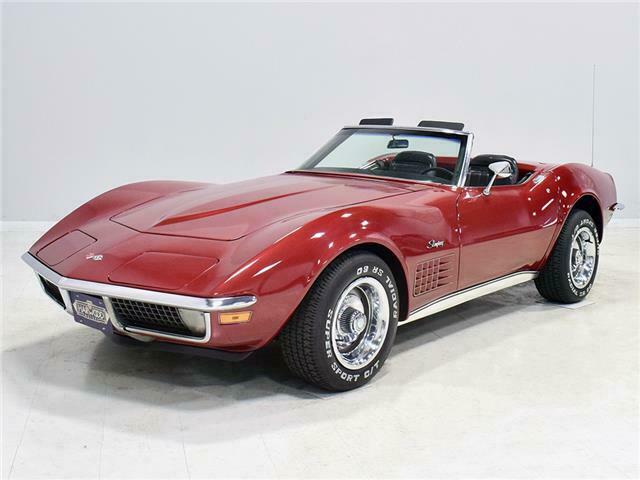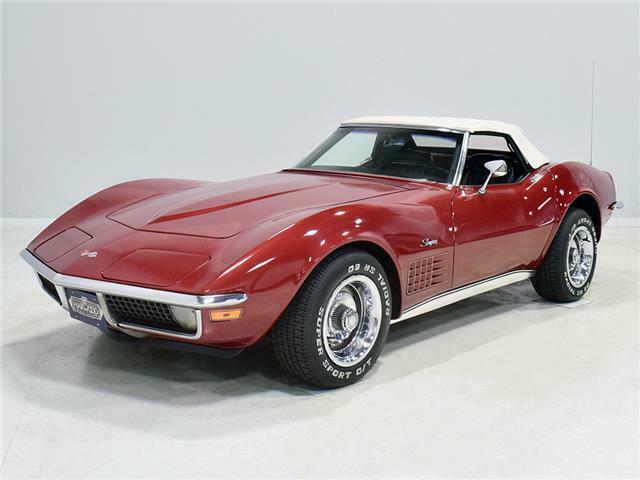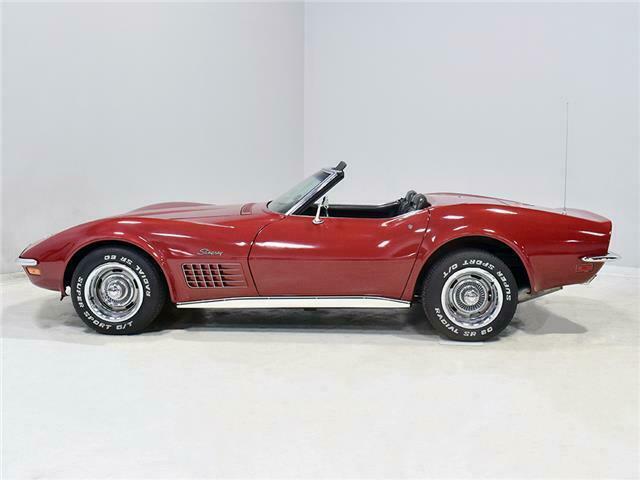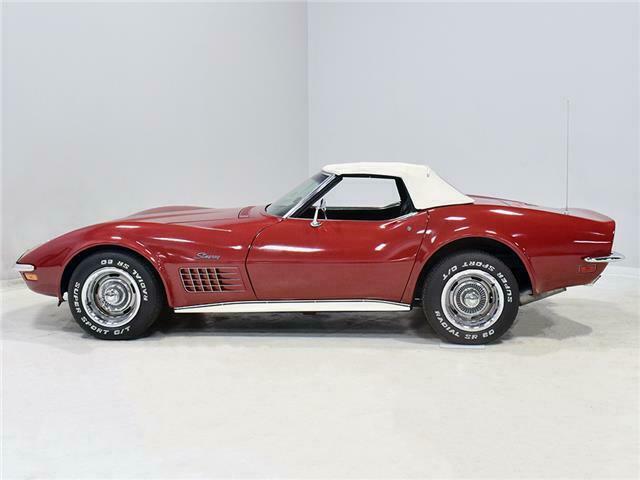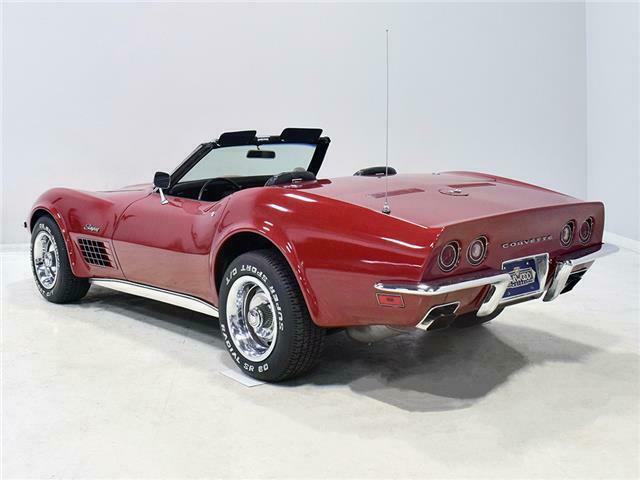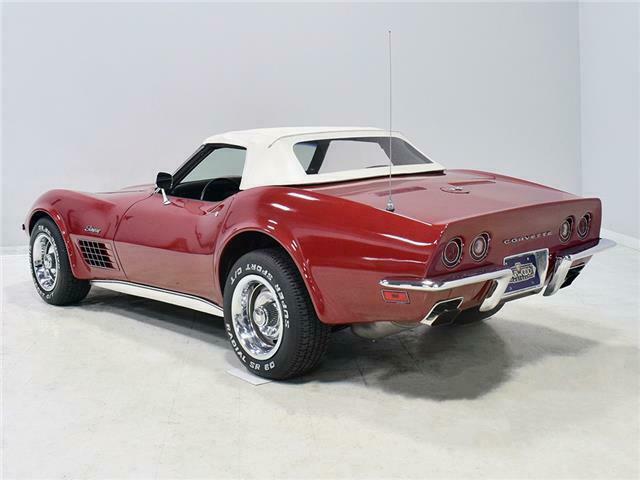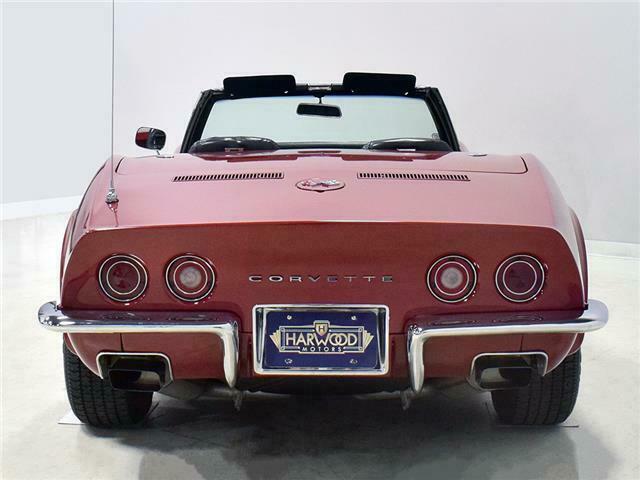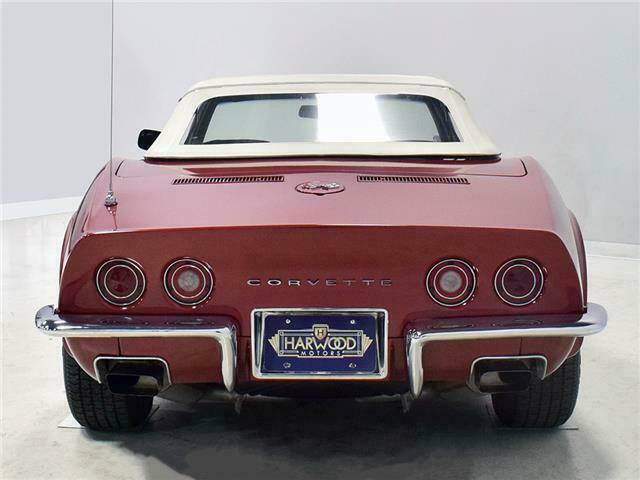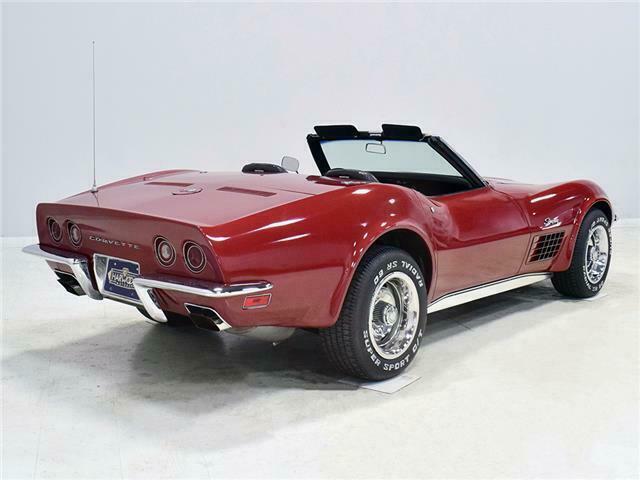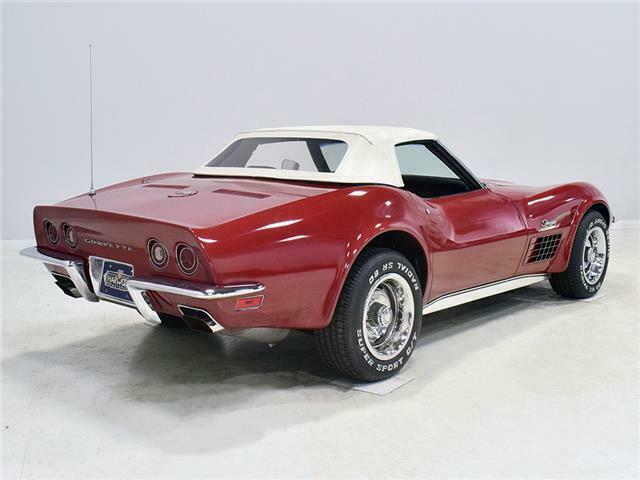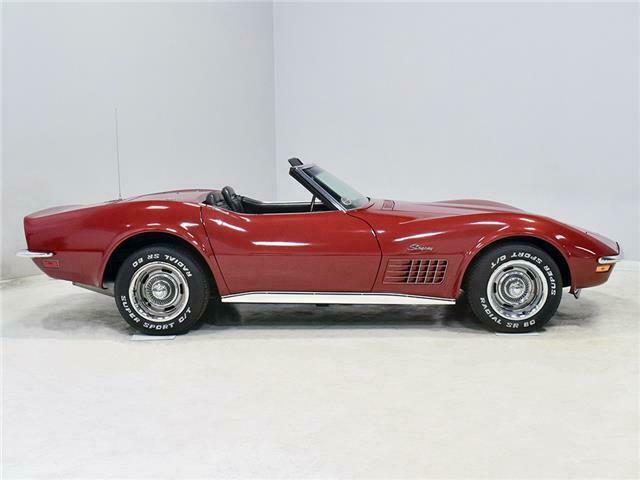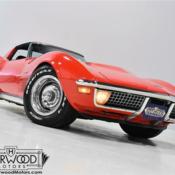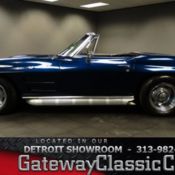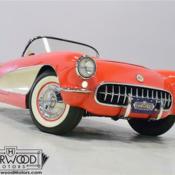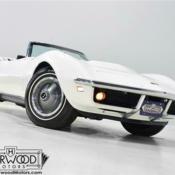|
Not all great cars are perfect and very few perfect cars are truly great. TV shows and auctions make it seem like only frame-off restored trailer queens are worth owning, but our experience here tells a very different story. Yes, if you want a car that wins awards and you don’t care how it drives, there are plenty of those around. But if you’re like most of us with more modest means and a desire to actually use your collector car as something other than static art, perhaps you should consider something with a great pedigree and a reasonable price, something like this fantastic 1970 Chevrolet Corvette convertible. Code 975 Marlboro Maroon is this car’s original color. It was repainted some years ago, but they must have done a great job because the car still looks very good. There’s a soft shine that only time can create and which looks a lot more authentic on an old ‘Vette than a modern two-stage job. It’s just about the right color, too, with Marlboro maroon being a bit less bold and a little softer than, say, Madeira Maroon, and the combination of the subtle color and the sledgehammer small block under the hood is extremely appealing. There’s absolutely zero evidence that this car was ever hit, wrecked, or damaged and it fits together just about the way you’d expect a 50-year-old ‘Vette to fit, with decent gaps, a solid feel to the doors, and no issues in the usual areas around the headlight doors. The only possible issue is a tiny hairline crack along the peak of the driver’s fender, which has been touched up but is not visible even from three feet away (we can’t really even photograph it). I also note that the bumpers were re-chromed at some point and still look great, as does the stainless rocker trim. Best of all, you can drive it without worries about bugs, rock chips, or other maladies that freeze trailer queen owners in their tracks. That might be the ultimate luxury when you own a Corvette convertible like this. The car originally wore code 400 black vinyl seat covers, but when it was repainted it also received upgraded leather seat covers that really make a difference. Again, the passage of a few years makes them look extremely authentic with that comfortable, lived-in look that makes Corvettes some of our favorites. It just feels right to settle in behind the wheel of this convertible and everything is instantly familiar, even if you’ve never been in one before—that’s design done right. Remarkably, the door panels and carpets are original and in fantastic shape, as is the dash pad which hasn’t been cooked by the sun. All the gauges are bright and fully operational including the 6000 RPM redline tachometer, which came with the 350 horsepower L46. The factory AM/FM radio is still in the center console and yes, all the fiber-optic indicators work properly, too. Nice! It appears that only the clock is inoperable, which isn’t surprising. The white convertible top remains in excellent shape, folding easily behind the seats and offering a crystal clear rear window that hasn’t been yellowed by age. And in any early C3, I suppose it’s also important to note that the windshield wipers work properly, popping out of their hidden compartment when you hit the switch. The original, numbers-matching 350 cubic inch L46 engine makes an impressive one horsepower per cubic inch and gave up only 20 horsepower to the mighty LT-1. Today as in 1970, it remains a mistake to simply look at cubic inches to judge a motor, and for many enthusiasts a good-running small block is the primary weapon of choice. The hydraulic cam makes it easy to live with and it has a pump-gas-friendly compression ratio, yet it snarls and roars when you really get into it. It is remarkably docile if you’re just tooling around and doesn’t get hot or grumpy sitting in traffic. It’s also correctly detailed with Chevy Orange paint on the block, finned valve covers, an open element air cleaner with correct 350 horsepower decal, and even tower hose clamps. Upgrades include a full MSD ignition system to light it up reliably and there’s plenty of evidence of proper care over the years—note the new master cylinder, heavy-duty cooling system, and original alternator with correct oversized pulley. It starts easily, idles well, and works like you’d hope your Corvette would work, offering big performance without any sacrifices on your part. That’s what makes Corvettes so great. The transmission is likewise the original wide-ratio Muncie M20, which was the standard transmission in a Corvette (back when men were men). The undercarriage is extremely tidy for a 50-year-old car that has never been fully disassembled. It shows exactly zero rust or critical damage, particularly in the areas just ahead of the rear tires where C3s always have issues. There’s recent exhaust system with stainless Magnaflow mufflers that sound great and there’s a long list of recent service work. Yes, it’s a bit grimy, but remember that we’re talking about a car you’re going to drive on real roads, not a trailer queen, so it’s probably better that someone else already got it dirty for you. The small block V8 still sounds potent at idle with a muted V8 burble from the tailpipes that escalates as you run it through the gears. The suspension is surprisingly compliant, making this a fine long-distance cruiser, and the 3.36 gears are reasonable on the highway. 8-inch Rally wheels are unmarked and feature fat 235/60/15 white-letter radials with plenty of life left in them. We had a saying at the Corvette shop where I used to work: “I can get my small block car around the track faster than your big block car.†This awesome ragtop is proof of concept. There might be a few big block cars that will outrun it in a drag race but none of them are as agile, nimble, and downright tossable as this L46. If you delight in the driving experience, this car will reward you in ways that you can’t imagine until you’re behind the wheel. Don’t think about what it isn’t, just focus on what it is: a rock-solid car with an awesome look and bulletproof pedigree. How can you go wrong with that? Call today!
|
 Home
Home Contact us
Contact us NEWEST CARS
NEWEST CARS SELL YOUR CAR
SELL YOUR CAR FAQ
FAQ